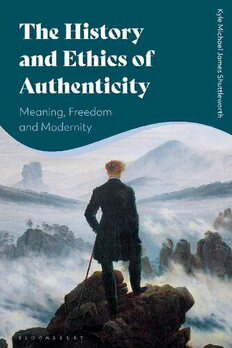
The History and Ethics of Authenticity: Meaning, Freedom and Modernity PDF
225 Pages·2021·11.186 MB·English
Most books are stored in the elastic cloud where traffic is expensive. For this reason, we have a limit on daily download.
Preview The History and Ethics of Authenticity: Meaning, Freedom and Modernity
Description:
Addressing the post-enlightenment problems of meaning and freedom, Kyle Shuttleworth traces the historical development of the ethics of authenticity in a lucid and vigorous study. The emergence of authenticity as an ethical ideal is probed in relation to the rise of social freedom and individualism which opens up conversations and disagreements with the German Idealists, and later, Habermas, Foucault, and MacIntyre. Taking heed of these intellectual predecessors and proponents of ethical authenticity leads to an original conception of a socio-existential account of ethical authenticity, made possible by the work of both Taylor and Sartre.Moving beyond virtue ethics, discourse ethics and Foucauldian notions of self-care, The History and Ethics of Authenticity constructs a practical ethics of authenticity that is both embedded in and able to transcend the current moment. Making use of contemporary reference points, including the rise of social media, capitalist branding, and competing appeals to identity, authenticity becomes an achievable ethical ideal.
See more
The list of books you might like
Most books are stored in the elastic cloud where traffic is expensive. For this reason, we have a limit on daily download.
